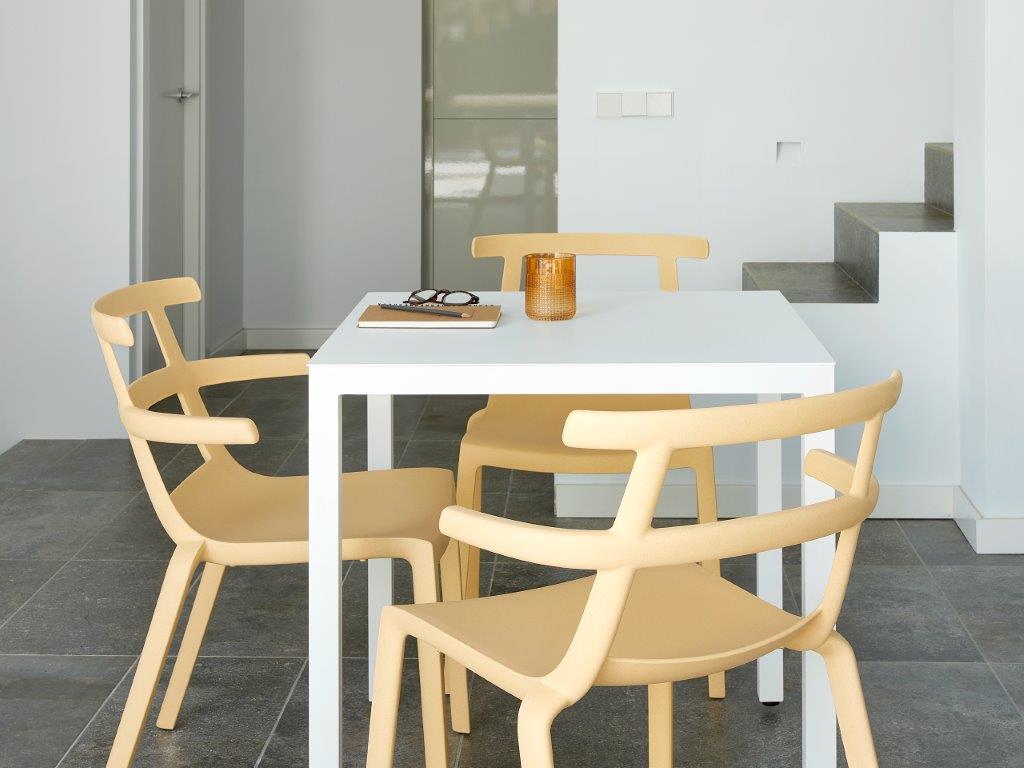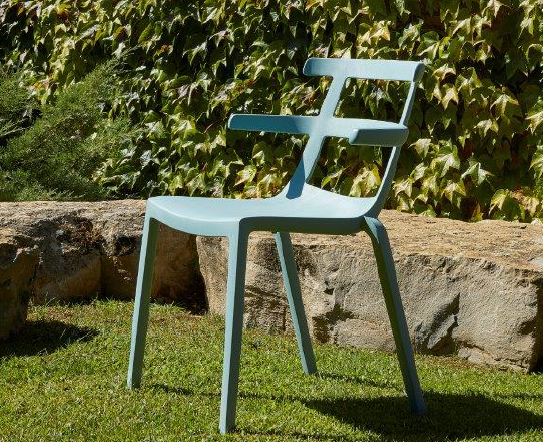Blog
“Design is the first signal of human intention,” said architect and designer William McDonough. Every piece, every material, every choice in a design project tells a story and reveals a purpose. In a world where sustainability is no longer just a trend but a necessity, the furniture you choose defines both spaces and the values that sustain them. Creating a sustainable project is not merely a functional act—it’s a declaration of intent, a commitment to the future and a step towards a more balanced planet.
Sustainability without compromising design
Sustainability in design doesn’t mean sacrificing aesthetics—on the contrary, it elevates them. Pieces like those from Resol's Green Edition collection blend contemporary design with environmental responsibility, proving it’s possible to create beautiful and welcoming spaces without harming the planet. Made from recycled plastic, the chairs in this collection not only prevent waste from ending up in landfills but also reduce the demand for non-renewable resources.
When selecting a sustainable chair or any other piece of furniture, ask yourself: Where does it come from? What is it made of? What impact does its production have? Can it be recycled at the end of its life? These questions can guide you in making more thoughtful decisions aligned with the principles of your sustainable project. To get you started, here are three quick tips for selecting sustainable furniture:
Choose furniture made from recycled plastic: Recycled plastic is an excellent ally for sustainable design. It is durable and long-lasting, ensuring furniture has an extended lifespan and reducing the need for frequent replacements. Using recycled plastic gives discarded materials a second life, preventing them from polluting oceans or piling up in landfills. This practice reduces the production of new plastic and fosters a circular economy by extending the life cycle of materials, significantly contributing to the reduction of plastic waste.
Look for sustainability certifications: Ensure the furniture you choose carries certifications that demonstrate its environmental commitment. For example, Resol’s Green Edition collection designs hold certifications like ISO 14001, which guarantees a responsible environmental management system, and ISO 14006, which focuses on eco-design. These certifications reflect that each product has been thoughtfully designed to minimise its environmental impact throughout its entire lifecycle without compromising quality or functionality.
Consider the product’s lifecycle: From design to recycling, every stage of a piece of furniture’s lifecycle should aim to reduce its environmental footprint. Resol’s Green Edition collection is a prime example of how smart design can transform recycled materials into innovative and sustainable pieces.
Responsibility that goes beyond design
Choosing sustainable furniture invites us to reimagine design as a tool for building a better world. With its Green Thinking initiative, Resol demonstrates that functionality, aesthetics and sustainability can coexist seamlessly. A commitment towards the elimination of virgin plastic in favour of recycled materials that redefines the standard for conscious design.

